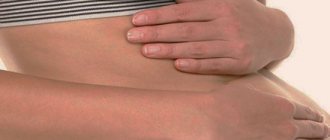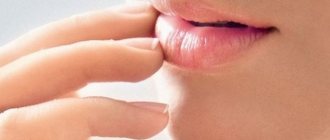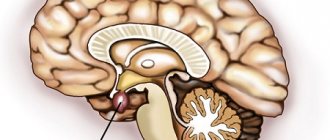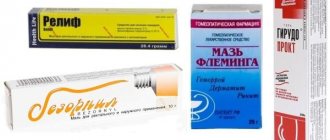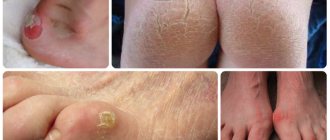A clean pink tongue without heavy plaque or external lesions is considered the norm. When cracks appear in the tongue, this means that there are various kinds of pathologies in the human body. Treatment is prescribed by a doctor. Depending on the problems identified and the diagnosis, therapy may be different.
Congenital anomaly
Have you heard anything about “folded tongue” syndrome? So, you can become the “lucky” owner of a tongue with cracks from birth. Oddly enough, such an anomaly does not cause any trouble to its owner: the person does not have any discomfort or pain. The only problem is the accumulation of a large amount of plaque in the folds, which can be located everywhere (the entire tongue can be in cracks) in a completely random order, symmetrically or transversely.
Cracks in the tongue can be congenital
Causes of pathology
Cracks in the tongue are congenital and are detected in a child from the moment of birth. Such defects do not cause pain or other discomfort and do not require treatment. This symptom is called “folded” or “scrotal” tongue syndrome.
Cracks that appear later in life can be caused by internal or external causes. All of them are divided into 2 types:
- local - mechanical damage, dental problems, tongue diseases (glossitis);
- general - various diseases, weakened immunity or deterioration of the body as a whole.
The main root cause of damage to the surface of the tongue in adults is disruption of the internal organs. Most often, cracks in the tongue are associated with pathologies of the digestive tract and liver.
Local
Inflammation of the tongue as a result of injury or exposure to pathogenic bacteria is called glossitis. The disease has several forms and types of external manifestations. All of them are often accompanied by the formation of cracks of varying severity, surrounded by a light coating. The pathological process causes burning, tingling and other unpleasant sensations.
The cause of this disease can be various irritating factors:
- oral hygiene products that cause an allergic reaction;
- long-term trauma to the oral mucosa, for example, unsuitable dentures, accidental or involuntary biting of oral tissues.
It is not difficult to cure cracks caused by these reasons. Usually it is enough to eliminate the source of their appearance.
Are common
The general reasons that provoke the formation of cracks in the tongue are more varied and largely depend on age. In children, this pathology most often develops against the background of:
- deficiency of vitamins A, PP, B due to unbalanced nutrition;
- presence of helminths in the body;
- poisoning or intoxication of the body.
In adults, cracks in the tongue appear with similar disorders, and can also be a symptom of other diseases:
- pathologies of the liver, stomach, intestines, and other abdominal organs;
- hormonal imbalances;
- blood diseases;
- nervous system disorders.
Especially often, cracks in the tongue appear due to liver dysfunction, due to which the absorption of nutrients is significantly impaired. As a result, a deficiency of many important microelements and vitamins develops, which leads to a violation of the integrity of the upper cover of the tongue. Vitamin deficiency has similar consequences against the background of helminthic infestation, since the presence of helminths leads to an increase in the deficiency of many elements (especially iron) and the appearance of anemia.
Pathologies of the digestive system and liver have no less negative effects on the surface layer of the tongue. Cracks often form due to various diseases of the stomach, intestines or liver failure, since these problems also significantly impair the absorption of nutrients, creating a deficiency of necessary elements.
Glossitis
If your tongue is cracked and you are wondering what this means, then first of all rule out such a classic tongue disease as glossitis. Patients with this disease usually complain of a constant tingling and burning sensation, which is further intensified after eating hot foods. A tongue with cracks will become swollen, covered with ulcers, and a whitish coating will appear on it. Dry mouth will occur. And the causes of this phenomenon in most cases arise as a result of systematic trauma to the mucous membrane.
Glossitis comes in different forms. Depending on how the cracks are located and what they look like, the causes are determined and treatment is prescribed. In the photo below you can see diamond-shaped glossitis (cracks resemble a diamond shape). What is characteristic of this disease is that it can be completely asymptomatic for many years, due to problems with the gastrointestinal tract, and not cause significant concern to the owner.
Photo of rhomboid glossitis on the tongue
In the medical history of some patients, folded glossitis is also present - then the tongue in longitudinal and transverse fissures is a constant source of pain and discomfort. If you are concerned about desquamative glossitis, then it all starts with small lesions, but without proper treatment the disease quickly progresses.
Traditional medicine against cracked tongue
Alternative medicine includes many recipes that can provide effective assistance in the treatment of cracks. For example, you can use the following:
- Lovage grass. Two tbsp. dry herbs are poured into 400 ml of cold water, heated over low heat until boiling for about 15 minutes. The broth is cooled and filtered. Serves as a mouth rinse four times a day.
- Pine needles. Pick fresh needles (4-5 pieces). Rinse in water, chew. Try to keep the resulting juice in your mouth. This procedure can be performed several times a day. After a week, the cracks will completely disappear, and exacerbations of the disease will not occur for a long time.
- Sage (leaves). Purchased at a pharmacy. A decoction is prepared according to the described recipe.
- Plantain. This plant does an excellent job of healing wounds and stopping bleeding. Psyllium seeds are placed on the affected area of the tongue for 3 minutes, then they can be swallowed.
- Sour cream and cottage cheese. The products are mixed, laid out on a sterile bandage, and a compress is applied to the cracks. You need to keep it for several minutes, preferably late in the evening. It is advisable to repeat this procedure throughout the week.
- The sedum is large. The herb is mixed in quantity with honey (50 g per 50 ml). The mass is placed on the affected area of the tongue for 20 minutes. This procedure should be repeated from time to time.
- Oak bark. An infusion is prepared from 20 g of bark and half a liter of water. The mixture is brought to a boil, cooled, kept for 30 minutes, filtered. Rinse your mouth with this infusion up to six times a day.
- Pharmaceutical camomile. A tablespoon of herb is poured into 200 ml of boiling water and infused in a thermos. Rinse your mouth with the solution three times a day.
- Sea buckthorn, olive. The oil from these medicinal fruits is used to prepare lotions, applied to the surface of the tongue for 10 minutes. This procedure will eliminate discomfort.
- Hydrogen peroxide (concentration - 1.5%). Rinse your mouth with the solution after each meal to remove pathogenic microorganisms.
- Propolis/honeycomb. Chew a piece of any food before going to bed. After this, do not eat or drink.
- Potato juice. Grind fresh potatoes using a grater, place the mixture on a gauze cloth, and apply as a compress on the affected surface of the tongue. It is necessary to rinse the mouth with potato juice 3-4 times a day.
Diseases of internal organs
Pay attention to how and where the crack is located. For example, cracks on the sides indicate problems with the gastrointestinal tract, problems with the thyroid gland, or iron deficiency in the body. If you see damage in the middle of the tongue, this may be due to decreased immunity. Is your tongue cracked at the tip? Causes: stomatitis or mechanical damage (trauma, burns).
The presence of various serious diseases can explain why cracks appeared:
- stomach and intestinal diseases,
- HIV: in this case, ulcers and cracks, pimples on the patient’s tongue appear simultaneously, they bleed, heal slowly and continue to damage increasingly large areas of the mucous membrane,
- candidiasis1 or thrush,
- the presence of worms and helminths,
- diseases of the circulatory system,
- damage to the organs of the central nervous system.
Stomach diseases can cause cracks in the tongue.
Cracks in most cases are a cause for concern. And if you are wondering which doctor to contact if you notice such symptoms, you can start by visiting the dentist. He will sanitize the oral cavity and, if there are no dental problems, send you to a highly specialized specialist: an endocrinologist, gastroenterologist or neurologist. You can also get advice from a therapist - he will comprehensively examine the body, refer you for blood, urine and stool tests, and recommend an ultrasound scan.
Symptoms
When first contacting a medical facility, patients complain:
- for pain that occurs when eating food, during conversations;
- burning sensation in the affected areas;
- swelling of the organ, its swelling;
- dysfunction of taste buds;
- increased dry mouth, constant feeling of thirst.
In inflammatory processes on the body of the tongue (glossitis), the manifestations are symptomatic:
- pronounced hyperemia of damaged areas;
- formation of small bubbles;
- increased work of the salivary glands – hypersalivation;
- swelling.
A secondary infection causes hyperthermia (increased body temperature), general signs of intoxication of the body (headaches, feeling tired, weak).
Allergic reactions
Did cracks appear on your tongue out of nowhere? Pay attention to your personal hygiene products; perhaps the reason is unsuitable toothpaste or mouth rinse. Or maybe you recently started taking medications that led to a similar reaction.
It will be enough to stop using the product and take a course of antihistamines so that the tongue in the cracks no longer bothers you. After such manipulations, the symptoms will naturally disappear.
“I really like to eat sour fruits, I love citrus fruits. There was a time when I couldn’t live a day without them. However, something bad happened to me; one morning I felt pain and a burning sensation on my tongue. Looking in the mirror, I saw that he also looked extremely unpleasant. The doctor said that this is an allergy to citrus fruits, that in principle you can’t eat a lot of them, and they are even dangerous for the mucous membranes.”
[email protected] , from correspondence on the forums
Treatment of symptoms and causes
The first question that arises when a person discovers cracks in the tongue is what to do? Their elimination in the absence of accompanying symptoms is reduced to local treatment. If such conditions are caused by diseases of internal organs and systems, the elimination of defects on the surface of the tongue is carried out by treating the underlying disease that causes the unpleasant symptoms. The treatment regimen for the underlying disease is drawn up directly by the specialist who diagnosed the disease.
Local symptoms are eliminated by such means as:
- antiseptics to relieve inflammation (furacilin, dekasan or baking soda);
- anesthetics for an analgesic effect (gels with novocaine, benzocaine or lidocaine);
- medications for healing ulcers and wounds (for example, sea buckthorn oil).
In addition, herbal infusions and decoctions are widely used to eliminate cracks and pain.
Along with the use of medications to accelerate the healing of deep cracks in the tongue, it is recommended to maintain oral hygiene, including brushing your teeth twice a day, rinsing the mouth after meals, as well as timely removal of caries on the teeth.
If you experience pain, you should avoid spicy and salty foods so as not to irritate the inflamed surface of the tongue.
Injuries
If your tongue has cracks, the first thing you should pay attention to is that you may have damaged it in the recent past. How? Burnt by hot food, bitten. Injury to the mucous membrane can occur from any mechanical impact, which means that even an ordinary fish bone can easily scratch it. In this case, the damage will be accompanied by a change in the shade of the tongue - it may swell slightly and become painful.
Why is my tongue cracked? This can also be explained by the presence in the oral cavity of any removable and non-removable prosthetic devices, the main purpose of which is to restore the tooth, its aesthetics and functionality. The fact is that elements of such structures, for example, a clasp denture, can constantly irritate or rub the mucous membrane, as a result of which cracks will appear in the tongue. What else are they talking about? The material from which the structures are made may be of poor quality, the dentures themselves may be poorly made or may need correction and adjustment to your bite.
Clasp dentures can injure the tongue
Anomalies of the bite and jaw system, incorrectly positioned teeth, dystopic or impacted elements of the dentition, supernumerary teeth - all this can cause injury to the mucous membrane and tongue. Be sure to contact an orthodontist, otherwise don’t be surprised where the cracks came from. The reasons for their formation are clear, and you need to get proper treatment.
Prevention education
Glossitis, like any disease, is subject to preventive measures. In order to avoid the occurrence of cracks in the tongue, it is possible to adhere to a certain number of rules, among which daily hygiene procedures in the oral cavity play a significant role.
To prevent the occurrence of glossitis, you must follow these recommendations:
- Complete and regular cleaning of the oral cavity using toothpaste, brush, floss and mouthwash. But it should be borne in mind that all of the listed means must be selected in accordance with the individual characteristics of a person.
- It is recommended to undergo regular examinations with a dental specialist to carry out standard preventive measures at least once every six months.
- Quitting habits that are harmful to health. Among these, smoking, alcohol or drug use should be noted.
- Application of disease prevention measures. This number includes: colds, allergies, and those transmitted through sexual contact.
- It is necessary to switch to a healthy diet - to maximize immune health and obtain all the micro- and macroelements the body needs.
- Timely treatment of diseases by medical specialists and prevention of independent and uncontrolled use of medications.
- Compliance with standard hygiene rules. This includes washing your hands regularly, particularly before eating.
- Increasing physical activity. As a separate example – walks in nature or active recreation.
Each of these moments will allow a person to strengthen his own body as much as possible and protect himself from many diseases, in particular from cracking of the tongue. But it is also necessary to take into account the fact that each of the recommended points requires a competent approach, and some require additional consultation with relevant specialists.
Geographic language
The causes of cracks in both adults and children may lie in a disease called “geographical tongue.” In this case, the cracks are very deep, can reach 5-6 millimeters deep, which causes the patient severe discomfort and pain. All this is accompanied by general weakness, fever, the patient develops an unpleasant pungent odor from the mouth and a whitish coating. Most often, pregnant and lactating women, teenagers, and young children are susceptible to this type of disease. Reasons: unstable hormonal levels and weakened immunity. Here it is simply necessary to receive quality treatment in a timely manner. And in the photo you can see in detail why such a disease is called “geographical”. Doesn't it look like a map of the world?
Photo of geographic tongue
The causes of cracks are completely different, and in all cases, except those that indicate an anomaly acquired from birth, timely consultation with a doctor is required.
We probably won’t tell anyone the secret that treatment in such situations should be comprehensive, and it should not involve any amateur activity. It involves taking vitamins and medications as prescribed by a doctor, treating the mucous membrane with gels, lidocaine-based anesthetics, disinfection with furatsilin, physiotherapy, sanitation of the oral cavity, and replacement of dentures if necessary. Much attention should also be paid to correcting the diet and giving up bad habits, oral hygiene, rinsing with decoctions of medicinal herbs (chamomile, oak bark, sage).
Always remember: if cracks appear on your tongue, this is the first warning from your body that it needs qualified help.
Rate this article:
( 2 ratings, average: 5.00 out of 5)
language
- Sakharuk N.A. Oral candidiasis. Bulletin of Vitebsk State Medical University, 2007.
Treatment of cracked tongue
A dentist prescribes complex treatment for a patient who comes to him. Since the disease occurs as a result of other pathologies, accurate diagnosis is necessary to prescribe adequate treatment and eliminate the root cause. Usually, with effective therapy, oral symptoms disappear completely.
After examining the mouth, the dentist will refer the patient for a blood test, as well as a smear taken from the surface of the tongue, in order to identify the causative agent of the pathology. Additional consultations with a gastroenterologist, endocrinologist, and dermatologist are often practiced.
To alleviate the symptoms that appear, sanitation, disinfection, treatment and cauterization of wounds on the tongue are carried out. The shell is treated with disinfectant solutions: potassium permanganate (potassium permanganate), furatsilin.
When severe pain occurs due to cracks, “Lidocaine” and “Novocaine” are used as local anesthetics.
To quickly heal wounds in the mouth, widely used drugs that stimulate cerebral blood flow are used: Cavital, Trental, nicotinic acid. The healing effect is promoted by physiotherapy procedures that include galvanization, phonophoresis, electro and iontophoresis.
If there are many wounds and glossalgia in the oral cavity, then you should follow a special diet.
| It is necessary to begin treatment when such cracks form |
It excludes foods that irritate the oral mucosa:
- vegetables and fruits containing acids;
- dishes with spicy seasonings;
- very hot and, conversely, very cold dishes.
An important rule in the treatment of cracks should be oral hygiene. To prevent infection from entering wounds, teeth should be brushed after a person has eaten. Then rinse your mouth with either a saline solution or infusions of chamomile, sage, celandine, oak bark, etc.
Eating accompanied by itching, burning, discomfort, severe pain requires relieving symptoms with the help of anesthetic gels, for example, Metrogyl Denta, children's Kamistad, etc.
Rinsing with antiseptic solutions prescribed by a doctor that kill microorganisms helps a lot. Treatment with wound healing agents:
- "Chlorhexidine."
- "Rotokan".
- "Stomatidin."
- "Miramistin".
When used correctly as prescribed by a specialist, they can quickly heal cracks, eliminate dryness, and accelerate the regenerative abilities of tissue.
Often recommended for use:
- "Carotolin" is an oil preparation;
- sea buckthorn oil;
- "Retinol";
- taking B vitamins, ascorbic acid;
- use of immunomodulatory compounds, antihistamines.
New generation drugs against drowsiness have shown their effectiveness in practice, this applies to:
- "Erius".
- "Suprastinexa".
- "Telfasta".
“Old” drugs are no less effective:
- "Cetrin".
- "Tavegil".
- "Diazolin".
- "Suprastin".
Causes
Causes of cracked tongue:
- Damage or injury – mechanical and dental. Your tongue will become cracked if you bite it while talking or chewing food. If there is a broken tooth, it can also cause constant friction, which will eventually cause damage to form. Poor quality prosthetics is another reason for this problem.
- Biotin deficiency. Biotin (known as vitamin B7 or H) is used by the body to activate metabolism and fat synthesis, and plays an important role in carbohydrate metabolism. Biotin deficiency can cause muscle pain, dullness, dry skin and fatigue in addition to tongue defects.
- Sjögren's syndrome , or “dryness syndrome,” is a dysfunction of the exocrine glands (salivary, lacrimal, sweat). Symptoms include fatigue, muscle pain, dry mouth and nasopharynx, as well as ulcers, pits and grooves on our strongest oral muscle.
- Viral or bacterial infections (eg, oral herpes). They attack a weakened immune system and can cause tongue defects.
- Diseases of the digestive tract. In case of gastrointestinal disorders, the absorption of incoming substances is disrupted and damage to the mucous membrane begins. Cracks in our strongest muscle in the oral cavity signal the need to consult a gastroenterologist.
- Allergies (to dyes in candies, medications, toothpaste).
- Others (disorders of the central nervous system, parasitic infections, hormonal disorders).
Traditional treatment
To quickly get rid of this type of glossitis, you should follow these treatment tips:
1. Carry out regular oral hygiene. Thus, you need to brush your teeth and tongue at least twice a day. You should also be sure to use accessories such as mouthwash, dental floss, dental brushes and tongue brushes.
The tongue of a healthy person is pink and smooth.
2. You should visit the dentist and eliminate all possible provoking factors of the disease. These include caries, an open canal in the tooth and other diseases.
Treatment
Once the cause of cracks in the tongue has been determined by a specialist, treatment can begin.
Since the causes of the disease can be different, the therapy is different. Regardless of them, it is necessary to correct the underlying disease in a comprehensive manner with symptomatic measures (sanitation of the mouth, disinfection, treatment up to cauterization).
If the cause is an irritant, it must be eliminated. The doctor may also prescribe medications that improve cerebral blood flow.
It would be a good idea to take a vitamin-mineral complex after having done a detailed blood test. A proper diet will also help.
Drug therapy
If cracks appear frequently, the doctor will select the optimal therapy:
- potassium permanganate, furatsilin - for disinfection;
- novocaine, lidocaine - against pain;
- nicotinic acid, cavinton, trental - to improve blood circulation;
- vitamins - to eliminate their deficiency;
- carotoline, sea buckthorn oil - restore the surface of the tongue;
- motherwort, valerian - for calming.
In addition, you will have to go to the physiotherapy room for electrophoresis and strictly monitor your oral hygiene. After each meal, you will need to brush your teeth and rinse your mouth with a herbal potion (decoction of oak bark, sage, yarrow). Regular salt water will also work.
All of the above products are sold in pharmacy chains. Breast therapy will also help restore the tongue to its original form.
Folk remedies
There are folk recipes for any ailment, and a cracked tongue is no exception. If the cracks are not associated with serious pathologies, you can turn to witchcraft.
Herbs can be used not only for rinsing, they can be used to make a compress for the affected tongue. Sea buckthorn oil or cottage cheese with sour cream are ideal. In the latter case, the mass is wrapped in a bandage and sent “to the tongue.”
What recipe is without garlic, in this case it will also work. You need to chop it finely and put it directly on the crack. In order not to get burned, as soon as the burning intensifies, the “garlic” must be transferred to another area. The whole procedure takes no more than 15 minutes three times a day after a meal. After all the manipulations, apply sea buckthorn lotion.
Raw potatoes will help with glossitis . It should be grated and squeezed out, put the pulp in gauze, and keep the compress for half an hour. You can rinse your mouth with potato juice.
To remove cracks, it is not enough to carry out therapy; you should also follow a diet . The ban includes foods that irritate the taste buds and mucous membranes of the gastrointestinal tract - sour, salty, spicy, citrus fruits, tomato juice.
Watch the video to see another way to get rid of cracked tongue:
Duration of treatment
The results of treatment are purely individual and depend on many factors: the form and stage of the disease, chronic diagnoses, neglect and the patient’s compliance with all recommendations.
On average, drug treatment takes from 2 weeks to a month , if the cracks are not associated with serious pathologies.
If they appeared as a result of exposure to external factors, then the tongue will become smooth within a week, provided that the irritant is eliminated.
If self-treatment with traditional methods does not produce positive changes and the cracks only become deeper, consult a doctor immediately. Avoid ulcers.
At first glance, an uneven tongue may only have an unattractive appearance - just a cosmetic defect. But if the cracks that appear begin to cause discomfort, it’s time to go to the doctor. There may be a serious illness behind them . The sooner measures are taken, the more favorable the outcome.
Symptoms of fissures in adults
If you feel or visually observe 2 or more symptoms from the list below, this is a reason to consult a doctor:
- Visually noticeable cracks, wounds and grooves. It could be many cracks or one long crack that runs down the middle.
- Pain, irritation, or burning when eating spicy foods.
- Dry mucous membranes.
- The appearance of white or yellow plaque.
- Swelling of the tongue, discoloration.
- Discomfort when communicating, biting, chewing, etc.
- Manifestations of allergies (rash, redness).
Local factors
The appearance of cracks in the tongue can be a consequence of both pathological processes occurring in the body and a reaction to certain external stimuli.
The most common external causes of this phenomenon include allergies and injury to the tongue.
Allergic reactions
One of the most common causes of cracks on the surface of the tongue is an allergic reaction. Its occurrence is often associated with the use of unsuitable oral hygiene products, such as toothpaste, breath freshener or mouthwash.
In addition, a negative reaction can occur as a result of exposure to certain food dyes or medications that need to be absorbed.
If an allergic reaction occurs, a burning sensation, redness and the formation of small cracks on the surface of the tongue appear. After eliminating the irritant, the problem itself will disappear.
Tongue injuries
The main reason why cracks may appear on the tongue associated with mechanical injuries is a lack of microelements and nutrients in the body. In this case, even a slight biting of this muscle threatens the appearance of a crack.
At the same time, the acute course of the process is characterized by the absence of pain and rapid healing. If the situation develops into a chronic stage, with frequent trauma to the tongue, inflammation forms, which can be accompanied by an increase in the number of cracks, bleeding, swelling and severe pain.
Traumatic external factors include:
- wearing incorrectly selected and installed orthodontic structures ;
- damage to the edges of dental crowns;
- tongue bitingcaused by the nervous system's reaction to external stimuli;
- thermal and chemical burns.
Diagnostics
Diagnosing a cracked tongue is not difficult; an examination of the oral cavity is sufficient. However, since the crack is not an independent pathology (the exception is the hereditary form), but only a symptom of some disease, an examination is carried out aimed at identifying the root cause. To make an accurate diagnosis, laboratory tests are performed:
- a general blood test to assess the patient’s immunity, the general condition of his body, the presence of inflammation, lack of hemoglobin, etc.;
- a blood test for biochemistry, thanks to which you can assess the condition of the liver, kidneys, metabolic system, and also determine autoimmune diseases;
- blood test for human immunodeficiency virus (HIV);
- studies for TORCH infections (toxoplasmosis, viral hepatitis, chlamydia, gonorrhea, rubella, cytomegalovirus, herpes virus, etc.);
- test for syphilis;
- caprological research;
- bacteriological culture of scrapings from the tongue to identify and identify the infectious pathogen;
- histological examination to identify structural changes in tissues and cells.
Differential diagnosis is carried out with secondary syphilis, lichen planus, systemic scleroderma, glossitis, and flat leukoplakia.
It is rarely possible to single out any one reason that led to the occurrence of cracks; most often they appear due to several factors at once.
Prevention
Preventive measures to prevent the condition in question involve the use of the following set of actions to prevent the development of the described situation:
- Undergoing regular preventive examination by a dentist with the involvement of specialists from related specialties.
- Eliminating external factors that can lead to injuries to the tongue.
- Enough time spent outdoors playing games.
- Playing sports and doing physical exercises.
- Avoiding food intake that could cause injury to the area described.
- Complete elimination from the area in question of low-quality prostheses and structures that can cause injury to the patient.
- Measures to remove low-quality foods from the diet.
- Consuming sufficient quantities of vitamins and nutrients the body lacks.
Prevention
Considering that the disease is unpleasant and painful, causing many problems, it is better to take preventive measures. For example:
- You need to brush not only your teeth, but also your tongue, freeing it from plaque. This can be done with an ordinary teaspoon or a special spatula, a toothbrush with “pimples” on the back surface;
- it is necessary to treat the filiform papillae with care, do not drink or eat very hot drinks or food;
- You should not put only cooked soup, porridge, etc. into your mouth “for testing.” Receptors on the tongue suffer from exposure to high temperature;
- eat “sucking” sweets and lollipops with dyes as little as possible. Synthetic substances irritate the surface of the tongue and sometimes cause an allergic reaction;
- you need to monitor the condition of your own body, treat any pathologies in a timely manner, monitor a chronic illness;
- It is advisable to avoid spicy, sour, salty, pickled dishes;
- try to eat less confectionery;
- carefully care for the oral cavity with high-quality products for this purpose;
- Visit the dentist regularly (once every six months) to examine the oral cavity and eliminate various dental defects, gum diseases, and mucous membranes.
Treatment of the disease in its early stages of development will be successful and will be cheaper.
The appearance of such problems and ulcers is a sign of chronic pathologies. Such problems reflect the course of chronic processes in the body, which form as a separate disease.
Its therapy is determined by the specific forms of manifestation and types of disorders that occur.
Complications and consequences
The situation is fraught with the development of some negative consequences and complications if measures to localize this problem are not taken in a timely manner:
- Violation of the integrity of the linguistic surface and the development of problems in the future.
- Gradual limitation of speech function until its complete cessation.
- The development of concomitant painful conditions that cause certain interference with the motor activity of the tongue.
- Disruption of the normal process of food digestion.
- Problems with eating and brushing teeth.
- Development of difficulties with the treatment of cracks in the tongue when measures to localize the described phenomenon are not taken in a timely manner.
You can read here how to cure sticky spots in the corners of your mouth quickly at home.
You can get more information about flat leukoplakia of the oral cavity using the link provided.
Possible complications
Cracks formed in the tongue can become a place for the accumulation of small particles of food and bacterial plaque. In the future, this leads to the occurrence of an inflammatory process, which in turn can be accompanied by the formation of ulcers, suppuration and dark crusts. The inflammatory process in the oral cavity is accompanied by an increase in body temperature, swelling and soreness of the tongue.
To avoid this condition, you should consult a specialist at the first symptoms of problems with the oral mucosa.
What does localization indicate?
When determining the possible causes of cracks on the surface of the tongue, their localization is of great importance. There are three variants of the accumulation of pathological folds:
- in the center of the tongue;
- at the tip;
- on the side areas.
The appearance of cracks in the middle of the tongue may indicate the development of one of two diseases - folded or rhomboid glossitis. The impetus for the development of these diseases is the weakening of the body’s immune system.
Lateral localization of cracks in a muscle organ indicates disruptions in the gastrointestinal tract, as well as some blood diseases.
The formation of cracks at the tip of the tongue is associated with mechanical injuries. Burns and accidental biting, accompanied by frequent stress and fatigue, lead to deterioration of the mucous membrane.
Another common cause is stomatitis, which develops due to infections and eating too hot food.
Find out how long to wear braces until the defect is completely corrected, and what it depends on. Read here reviews about the blue T4a trainer and its purpose.
At this address https://dr-zubov.ru/lechenie/zuby/obezbolivayushhix-tabletok-ot-boli.html names and descriptions of safe painkillers for toothache in children.

